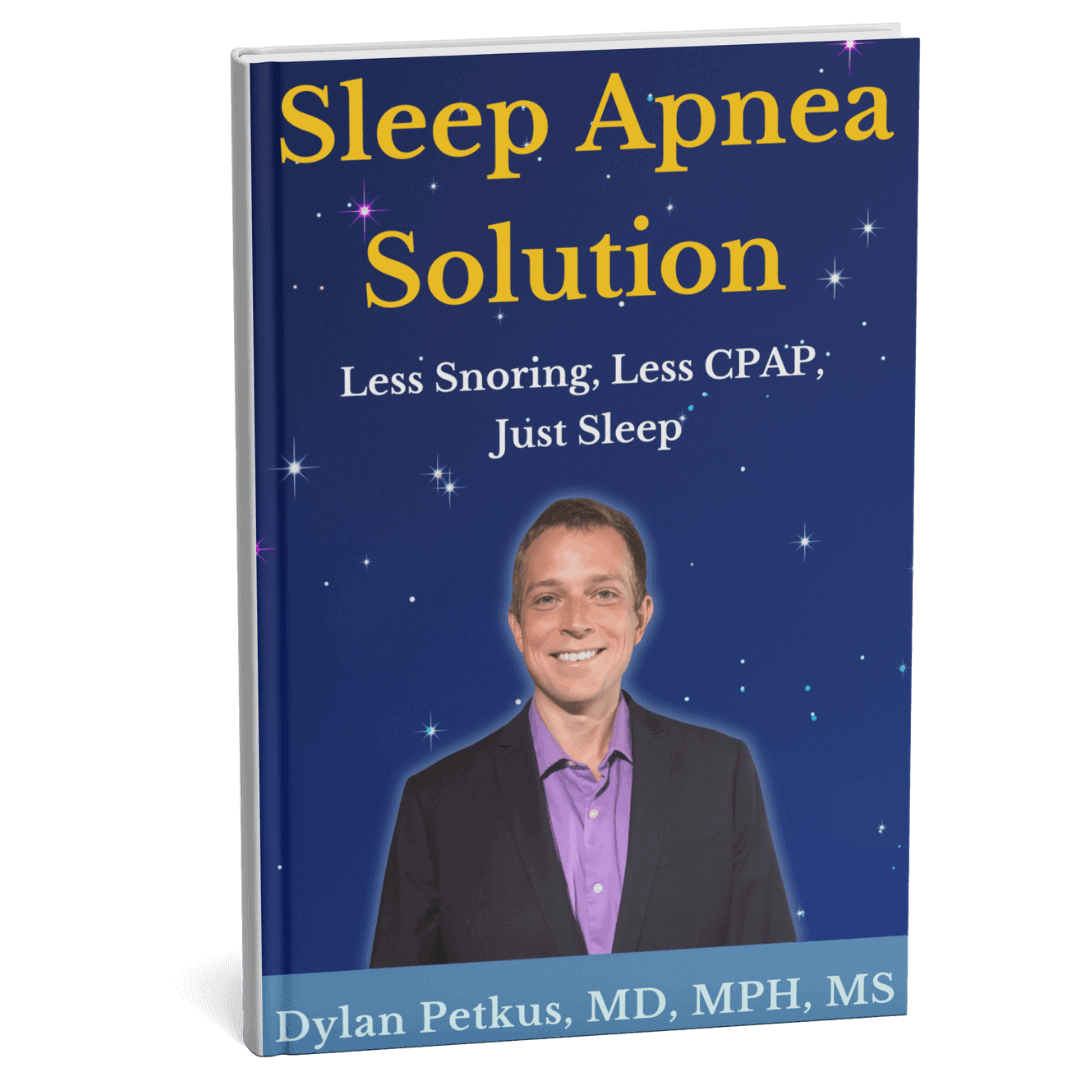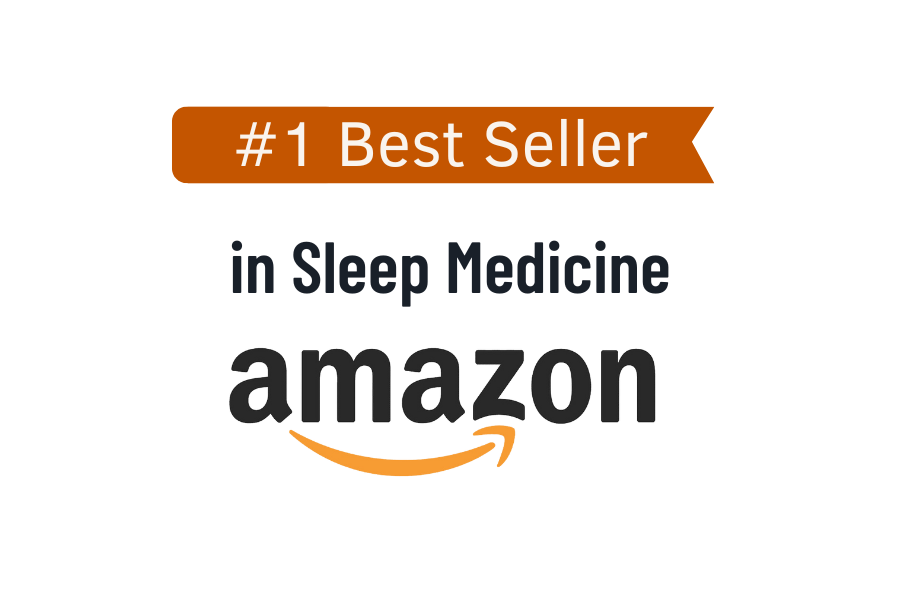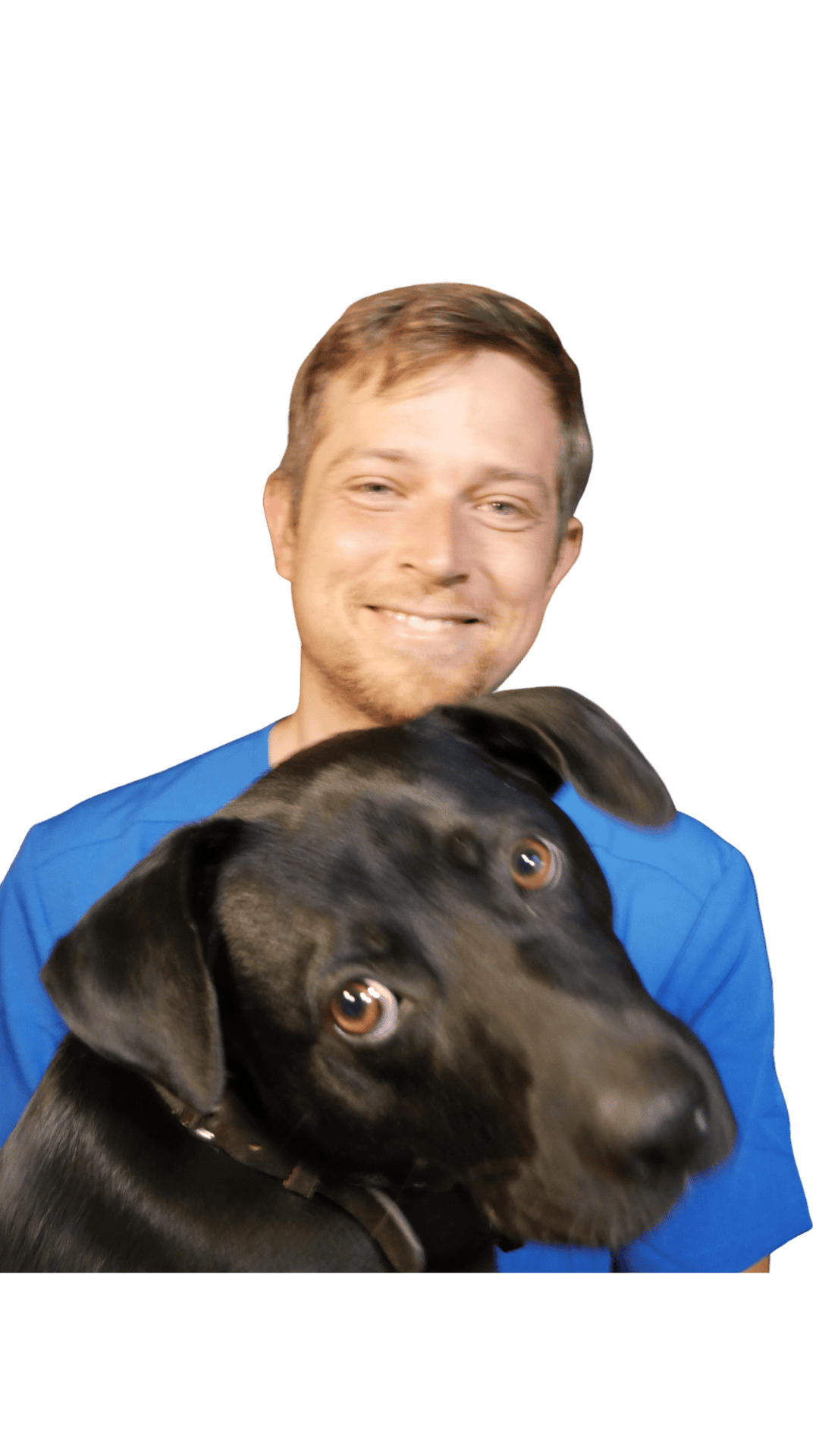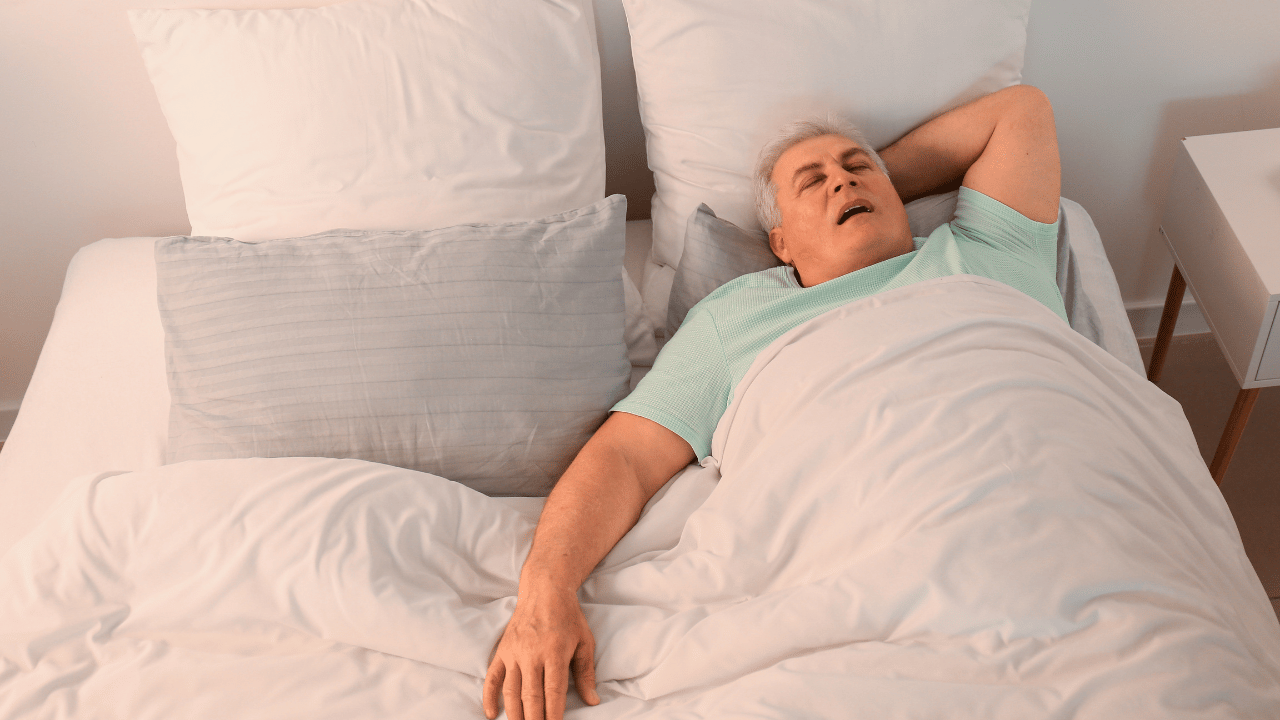
Sleep apnea is a condition that impacts sleep due to a narrowing of the airway. It means you might stop breathing intermittently, breathe more quickly than normal, or experience fatigue, headaches, and stress.
Does snoring mean sleep apnea? Often, yes, loud snoring is one of multiple potential symptoms. However, it is absolutely possible to experience sleep apnea even if you’ve never snored, but this doesn’t necessarily rule out sleep apnea as a potential cause of disturbed sleep. Snoring itself is a side effect–it isn’t the cause of sleep apnea. Therefore, any issues obstructing or narrowing your airway could mean you develop the condition, whether or not you snore.
Today, we’ll examine why snoring is a common indication of obstructive sleep apnea and what is actually happening in your throat when you try to sleep.
Sleep Apnea: An Overview of This Widespread Condition
One of the focuses of our book on sleep apnea, Sleep Apnea Solution, is to provide clarity and education about why the condition exists and highlight the functions within your airways that are causing the problem. There are two main types of sleep apnea:
- Having obstructive sleep apnea means your upper airway becomes blocked at night when you’re trying to sleep.
- Central sleep apnea is more complex, and while the symptoms can feel similar, the cause is linked to problems with your muscles and nerves that aren’t working as they should.
How many people have sleep apnea? There are roughly thirty-nine million adults in the US who have confirmed sleep apnea, according to data from the National Council on Aging (NCOA), but there are likely millions more who suffer in silence with disrupted sleep.
While a large proportion of people with sleep apnea also report snoring, the underlying issues may be more serious. If unaddressed, the condition can lead to health complications relating to your heart, metabolism, and kidneys. It can also cause chronic fatigue and headaches that impact your ability to go about your usual daily routines.
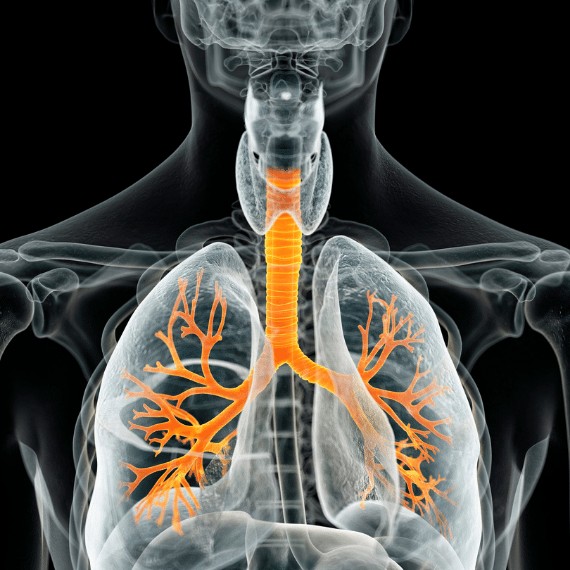
Why Do Most People With Sleep Apnea Also Snore?
Snoring is widely common and usually harmless. Johns Hopkins Medicine reports that 45% of adults snore occasionally, and 25% snore regularly. While the volume of that snoring can be problematic, it’s rarely connected to anything suspicious.
The connection between snoring and sleep apnea is all to do with the way your airways move when you sleep:
Healthcare services may offer a sleep tracker you can wear overnight to monitor your breathing. These devices often use a system called ‘AHI scoring,’ which determines whether your sleep apnea is mild, moderate, or severe and may influence the recommendations made.
Some health conditions may make you more likely to develop sleep apnea. This is not a foregone conclusion, and it does not mean you will not experience health challenges! However, conditions like high blood pressure and diabetes are often comorbidities where sleep apnea poses a risk factor, alongside other aspects of a person’s overall health profile, such as whether they maintain a healthy weight and active lifestyle.
Can hypertension cause sleep apnea? Potentially, it can. When your breathing is erratic at night, the variations in your heart rate and blood pressure strain your cardiovascular system. This means it could be important to overcome disturbed nighttime sleeping in the interest of your long-term wellbeing.
- Sleep apnea sufferers find that when they sleep, the tissue around the airway tightens rather than relaxes to allow for natural nighttime breathing.
- The airways become narrower or temporarily blocked, which makes it harder for the air to reach your lungs.
- That increased pressure and speed of breathing to try and ‘catch up’ causes vibrations–a key cause of snoring.
This same chain of events is why snoring is more typical in older adults. The density of our muscles lowers as we age, which means our airways naturally become constricted.
This doesn’t mean everyone will develop sleep apnea in later life, but it explains why the condition and general snoring are normal at this stage. One of the core takeaways is that the speed of breathing creates the problem, contributes to more or louder snoring, and impedes your ability to relax and rest during sleep.
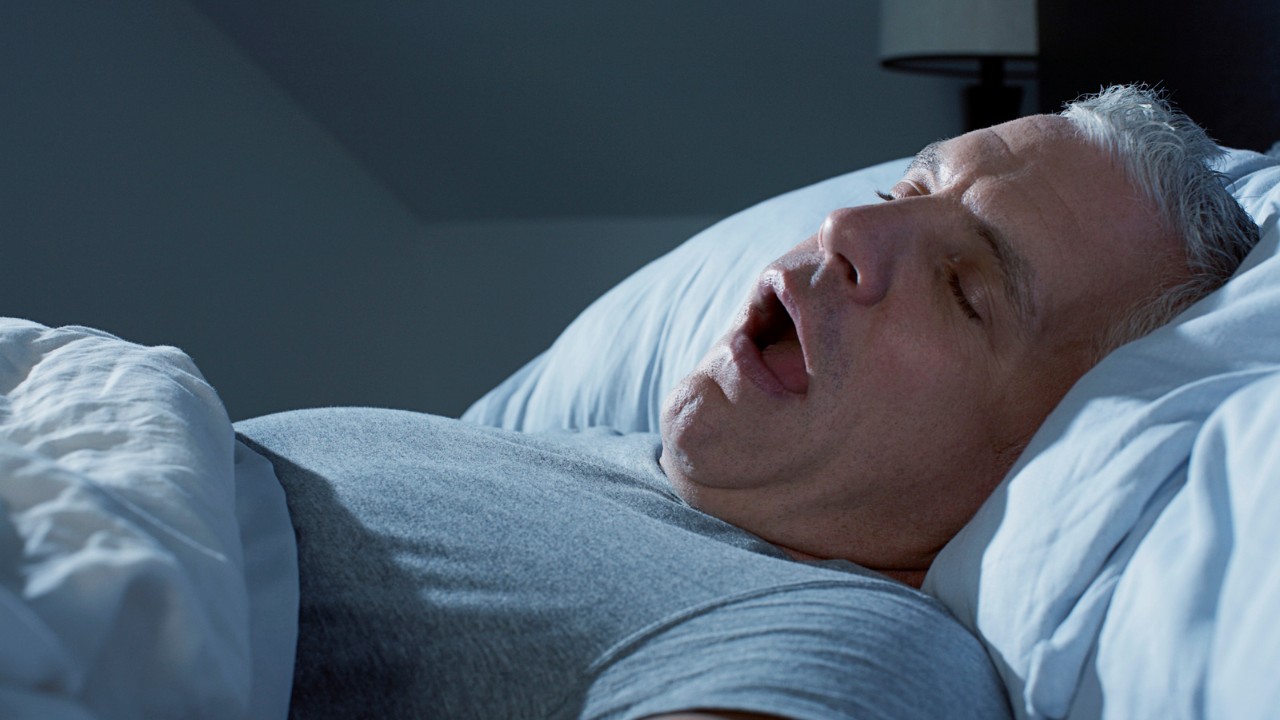
How Breathing Techniques Can Contribute to Healthy Sleep for People With Sleep Apnea
As we’ve discovered, faster inhalations exacerbate the blockage in your airway. You breathe quicker and quicker, trying to overcome the restriction caused by a tighter airway. The more quickly you breathe, the more your tongue becomes pulled back towards the airway, making the problem worse.
Learning how to activate slower breathing can help keep your airway open. A combination of breathing exercises, a peaceful sleep environment, and knowledge can ensure you understand how and why your sleep apnea occurs.
Slowing the speed of your breathing by following guided audio tracks, implementing a good nutritional intake, and restoring your natural circadian rhythm can be transformative and ensure you know the best ways to boost natural breathing–without a CPAP, mouth guard, or tape in sight.
You’ll find more information about sleep apnea symptoms, the importance of breathing, and insights about your own sleep apnea through our Sleep Apnea Solution book. Numerous resources, including a personalized Sleep Apnea Assessment, are also available on our website to help you get started!
References:
- Marshall NS et al. Sleep apnea and 20-year follow-up for all-cause mortality, stroke, and cancer incidence in the Busselton Health Study cohort. J Clin Sleep Med. 2014;10(4):355-362.

